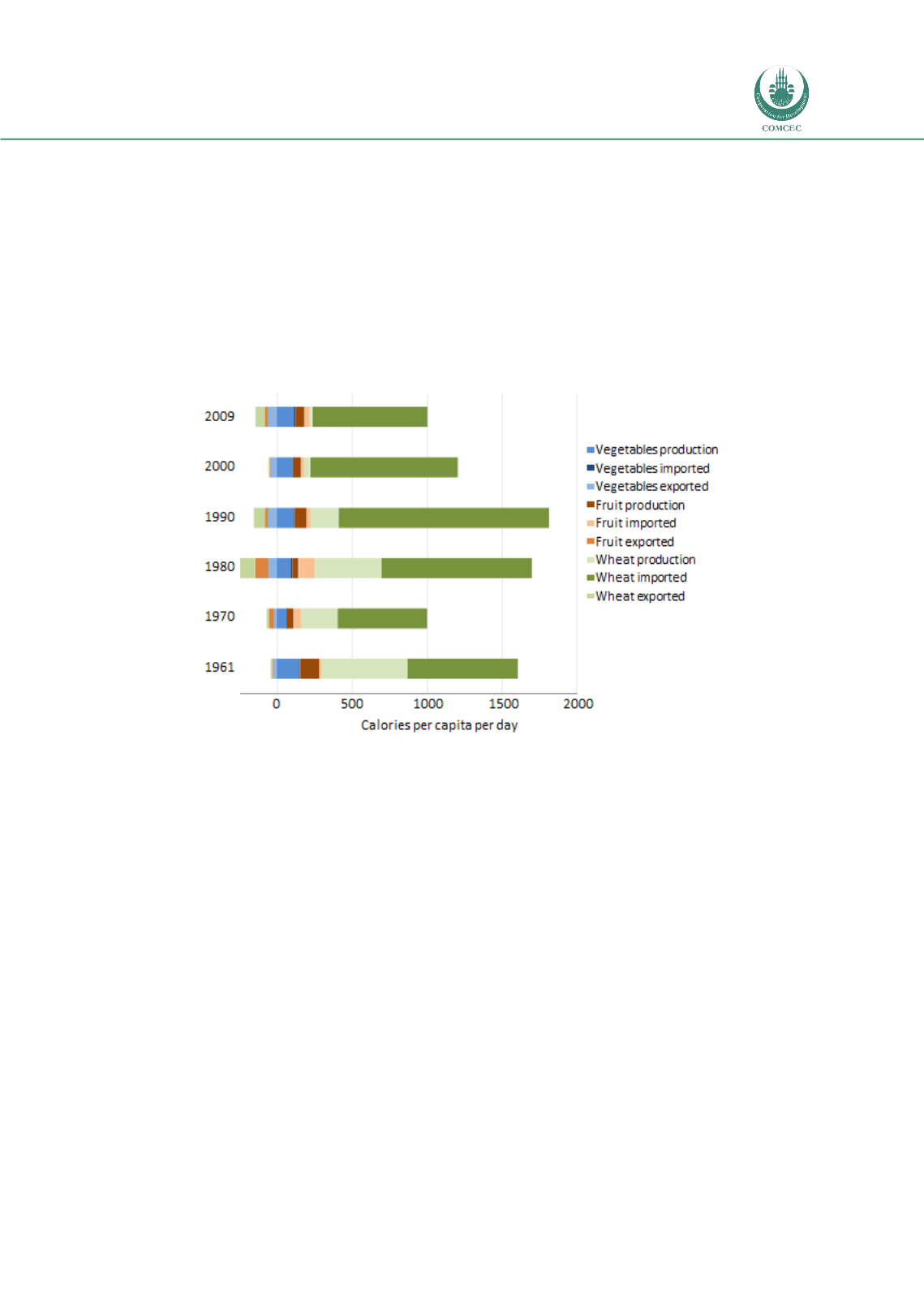

Facilitating Smallholder Farmers’ Market Access
In the OIC Member Countries
105
The change in policy, together with rising incomes, brought about a significant
restructuring of Jordan’s agricultural sector. For example, in 1985, before the policy
reforms, wheat provided about half of the calories consumed in Jordan. Even though
wheat imports were significant and Jordan had no comparative advantage in producing
wheat, domestic wheat producers were heavily protected. Following the reforms, the
structure of production and trade changed for various food sources
(Figure 61), including
wheat. Wheat production shrank, and domestic agriculture eventually stabilized around
the production of a smaller set of higher-value products, mostly horticultural goods. Even
as urbanization continued, average incomes in agriculture began to grow.
Figure 62depicts this transformation in a different way. Based on 2004–06 values, it
shows that the most significant component of Jordan’s agricultural restructuring was the
decline in cereal production. Other components of the sector have been stable or seen
modest increases.
FIGURE 61: RESTRUCTURING OF FOOD SUPPLIES IN JORDAN
Source:
FAOSTAT (FAO 2014).

















